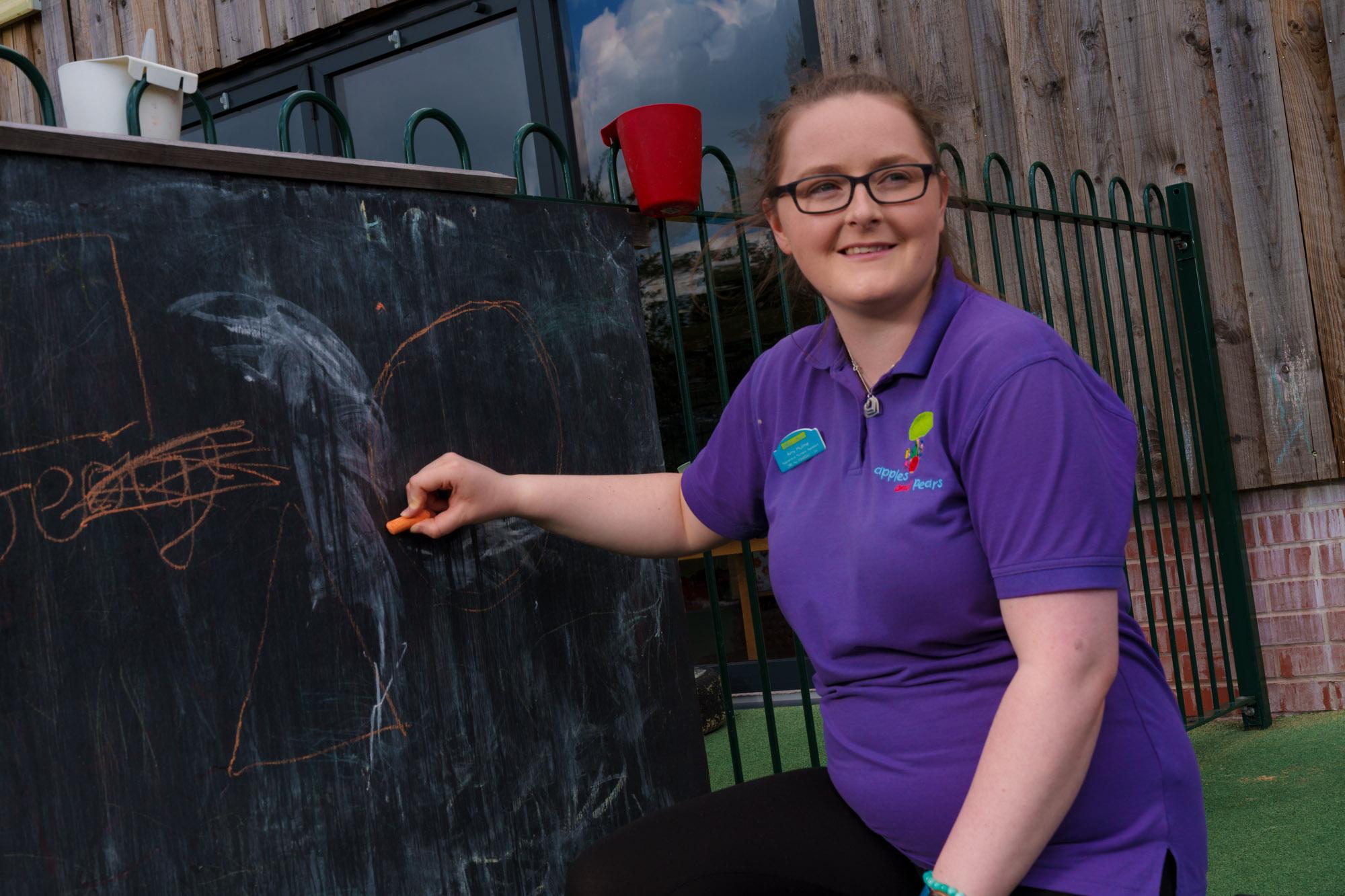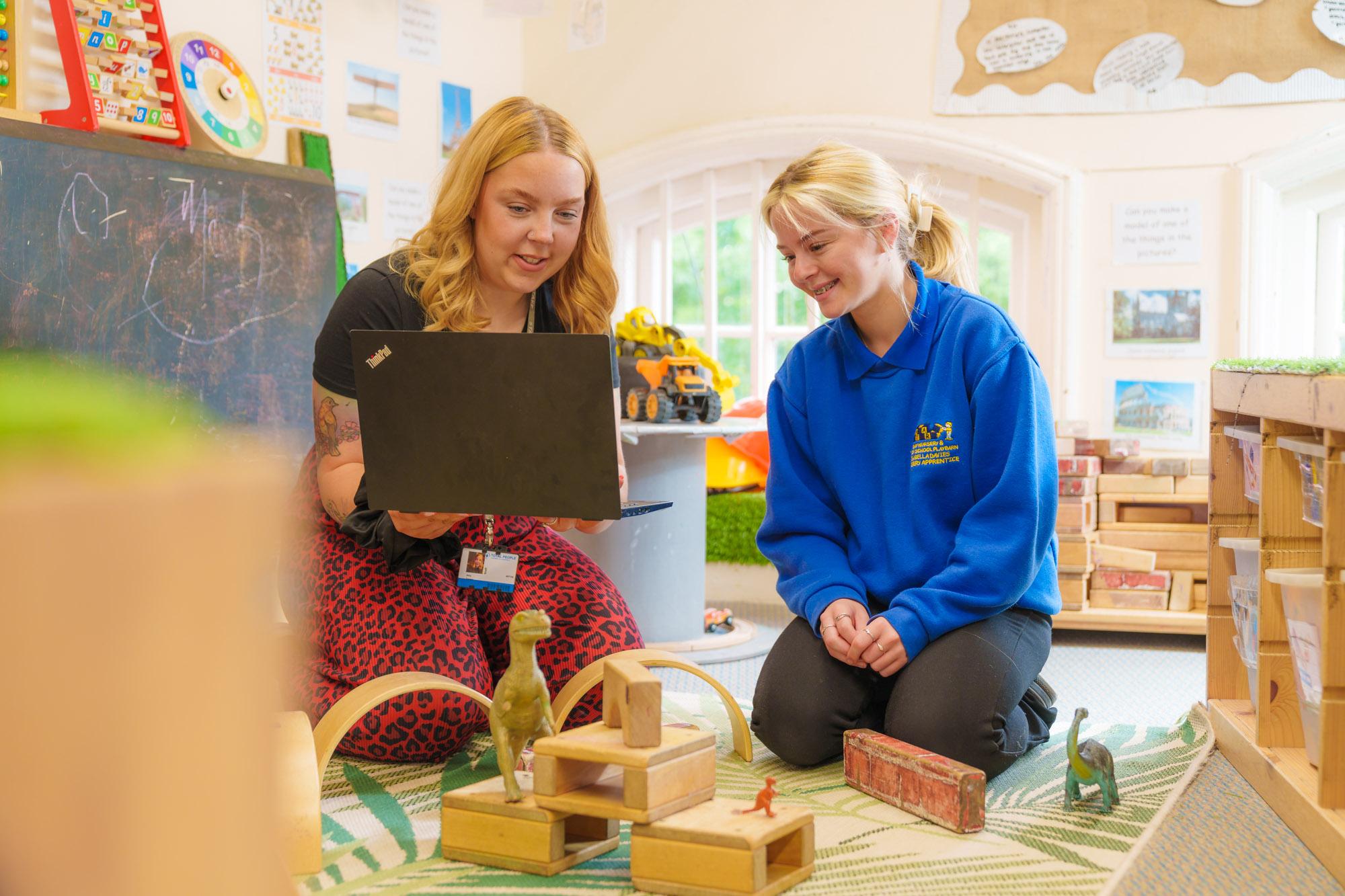Level 3 Early Years Educator
Duration: 18 months (Plus 3 months in gateway)
Start date: Ongoing
Early Years Educator Apprenticeship
If you're looking to build a career in early years education, this apprenticeship will equip you with the skills and knowledge to succeed. As an Early Years Educator, you’ll support the development of young children and contribute to their learning journey.
The programme combines one-on-one learning and online study, focusing on practical industry skills. Regular observations will help refine your skills, with clear objectives and evidence needed for the end point assessment (EPA). By the end, you’ll be ready to excel in your role and pass the EPA.


Topics, units and assessments
As part of the apprenticeship you will:
- Support children's learning, development, and wellbeing through effective pedagogy, observation, assessment, and planning, while promoting health and providing respectful care.
- Build secure relationships with children, families, and key individuals, advocating for children and working with others to improve outcomes and wellbeing.
- Collaborate with external organisations, promote equality and inclusion, and ensure compliance with child protection, safeguarding, and Health and Safety legislation.
- Engage in continuous professional development and reflective practice, while initiating and supporting practice improvements.
- Use technology to record and update key information and ensure statutory framework requirements are met in all policies and practices.
As part of the End Point Assessment (EPA), you will be expected to complete:
- Observation with questioning: In the observation with questions, an independent assessor observes the apprentice in their workplace and asks questions. The apprentice completes their day-to-day duties under normal working conditions. Simulation is not allowed. It gives the apprentice the opportunity to demonstrate the KSBs mapped to this assessment method.
- Professional discussion underpinned by a portfolio of evidence: In the professional discussion, an independent assessor and apprentice have a formal two-way conversation. It gives the apprentice the opportunity to demonstrate the KSBs mapped to this assessment method.
How you’ll learn
Apprentices must complete the minimum requirement for the off the job training. The requirement is to complete a minimum of 6 hours per week or the equivalent over the practical learning duration (20% of capped 30 working hours).
Off the job training must deliver new skills and knowledge that are directly relevant to the apprenticeship standard and can include:
- Teaching of theory via blended delivery methods
- Practical training
- Work shadowing
- Supported learning and time spent writing any assignments/questions.

-
Case Worker
Case Workers provide support to individuals and families, assessing their needs and connecting them with relevant services. They create action plans, advocate for clients, and monitor progress to ensure the appropriate resources are provided to families.
-
Family Practitioner
A Family Practitioner plays a crucial role in supporting children’s development and well-being by working closely with families, caregivers, and early years settings. They focus on factors that influence a childs growth, learning, and emotional well-being.
-
Senior Support Worker
Apprenticeships offer a clear route for career progression, allowing individuals to develop from entry-level roles into senior positions. This structured growth not only improves morale and motivation but also strengthens your workforce.
-
Key Worker
Key Workers are responsible for a group of children, monitoring their progress and well-being. They build strong relationships with children and families, plan personalised learning activities, and assess individual development paths for children.
-
Develop Skilled and Knowledgeable Professionals
Through the hands on experience gained, apprentices can immediately add value to business practices. During the apprenticeship, learners create engaging learning environments, support early communication and social skills.
-
Workforce Shortages and Build Future Talent
The early years sector faces ongoing staff shortages, making recruitment difficult. Apprenticeships provide a structured way to develop new talent, ensuring a pipeline of skilled professionals who understand your organisation's values.
-
Support Staff Development and Career Progression
Apprenticeships offer a clear route for career progression, allowing individuals to develop from entry-level roles into senior positions. This structured growth not only improves morale and motivation but also strengthens your workforce.
-
Cost-Effective Workforce Development and Compliance
With government funding and apprenticeship levy support, hiring apprentices is a cost-effective way to grow your team while ensuring staff are fully trained in safeguarding, first aid, and regulatory compliance.

Employer Hub
Get the information you need on how apprenticeships can benefit your business.
Our Employer Hub provides clear guidance on how apprenticeships can help your business thrive, plus all the details about funding and support you'll get every step of the way to make apprenticeships a key part of your workforce strategy.
Employer solutionsI would recommend doing an apprenticeship because I think it's the best way to learn things on hand. It's the best way to get the experience.
Lilly, Early Years Apprentice
